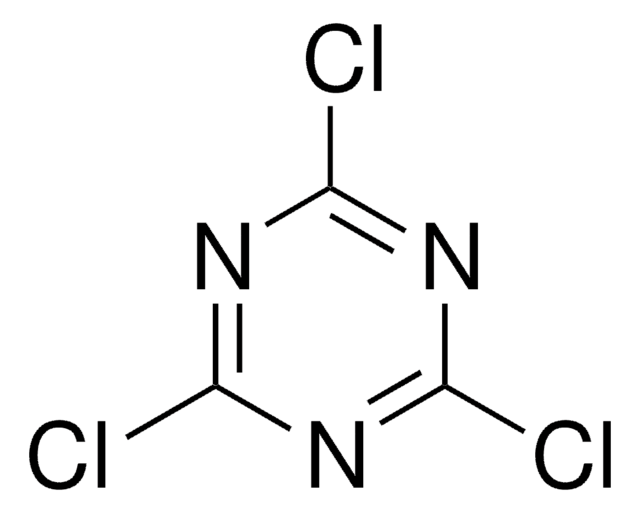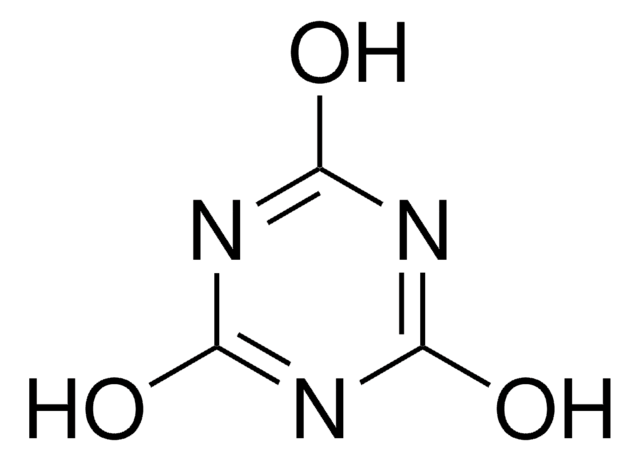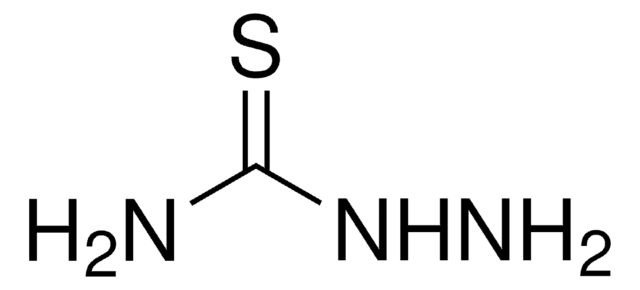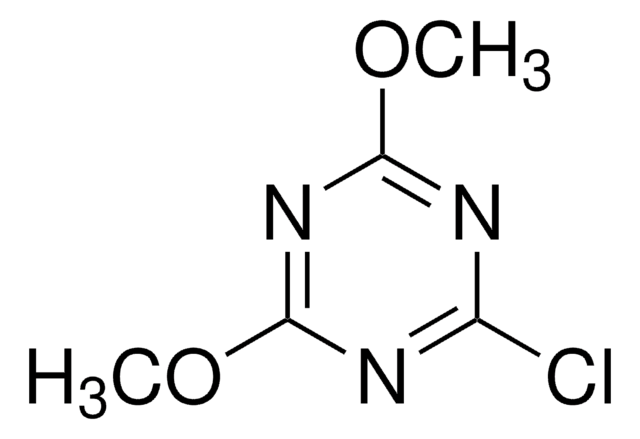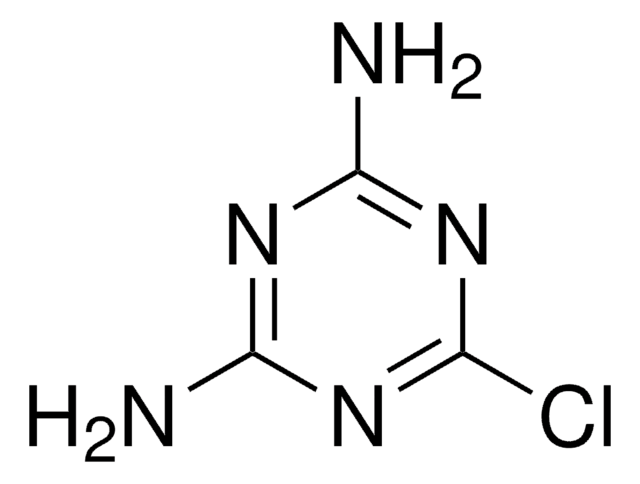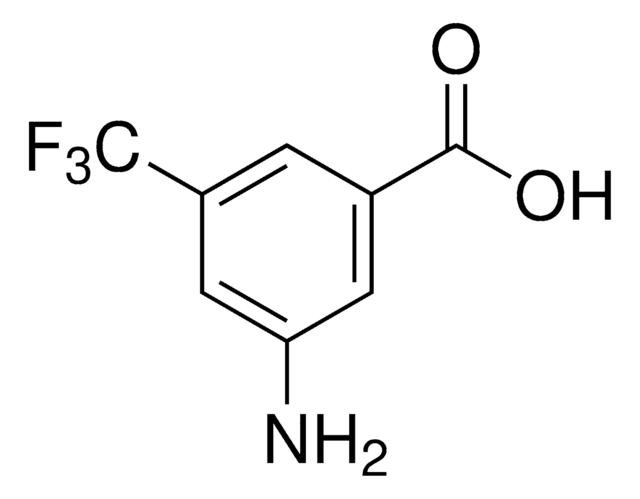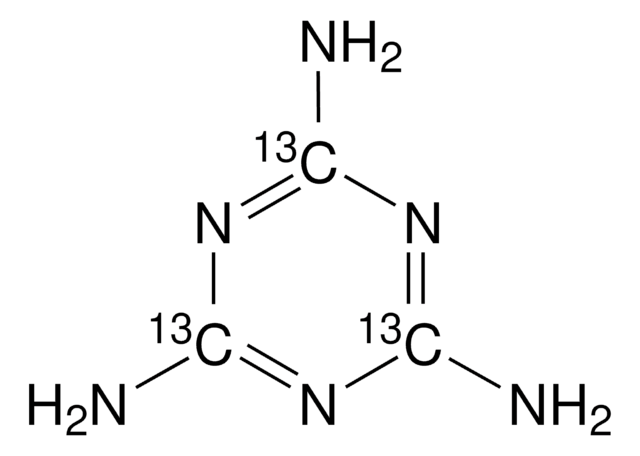185809
Cyanuric acid
98%
Synonym(s):
1,3,5-Triazine-2,4,6-triol, 2,4,6-Trihydroxy-1,3,5-triazine
About This Item
Recommended Products
Quality Level
Assay
98%
mp
>360 °C (lit.)
solubility
water: soluble 0.2% at 25 °C(lit.)
water: soluble 10% at 150 °C(lit.)
DMSO: soluble 17.4%(lit.)
water: soluble 2.6% at 90 °C(lit.)
DMF: soluble 7.2%(lit.)
acetone: insoluble
alcohol: soluble (hot)(lit.)
benzene: insoluble
chloroform: insoluble
diethyl ether: insoluble
hydrochloric acid: soluble (conc.)
methanol: insoluble (cold)
potassium hydroxide solution: soluble
SMILES string
O=C1NC(=O)NC(=O)N1
InChI
1S/C3H3N3O3/c7-1-4-2(8)6-3(9)5-1/h(H3,4,5,6,7,8,9)
InChI key
ZFSLODLOARCGLH-UHFFFAOYSA-N
Looking for similar products? Visit Product Comparison Guide
General description
Application
- iTRAQ-based proteomics analysis reveals the deregulated proteins related to liver toxicity induced by melamine with or without cyanuric acid in mice.: This study used iTRAQ-based proteomics to analyze liver toxicity in mice induced by melamine and cyanuric acid, identifying deregulated proteins associated with liver damage (Yin et al., 2019).
- The contribution of mediated oxidation mechanisms in the electrolytic degradation of cyanuric acid using diamond anodes.: The research investigates the electrolytic degradation of cyanuric acid using diamond anodes, focusing on mediated oxidation mechanisms for effective degradation (Bensalah et al., 2016).
- Encapsulation of [(SO₄)₄(H₂O)₁₁₂]⁸⁻ clusters in a metal organic framework of pyridyl functionalized cyanuric acid based tris-urea.: This paper explores the encapsulation of sulfate clusters in a metal-organic framework using pyridyl-functionalized cyanuric acid, highlighting its potential in material science applications (Dutta et al., 2015).
- Comparing atrazine and cyanuric acid electro-oxidation on mixed oxide and boron-doped diamond electrodes.: This study compares the electro-oxidation of atrazine and cyanuric acid on different electrodes, providing insights into the efficiency and mechanisms of electrochemical degradation processes (Malpass et al., 2013).
- Anion-pi interactions in cyanuric acids: a combined crystallographic and computational study.: The research examines anion-pi interactions in cyanuric acids through crystallographic and computational methods, contributing to the understanding of supramolecular chemistry (Frontera et al., 2005).
Storage Class Code
11 - Combustible Solids
WGK
WGK 1
Flash Point(F)
Not applicable
Flash Point(C)
Not applicable
Personal Protective Equipment
Choose from one of the most recent versions:
Already Own This Product?
Find documentation for the products that you have recently purchased in the Document Library.
Customers Also Viewed
Our team of scientists has experience in all areas of research including Life Science, Material Science, Chemical Synthesis, Chromatography, Analytical and many others.
Contact Technical Service